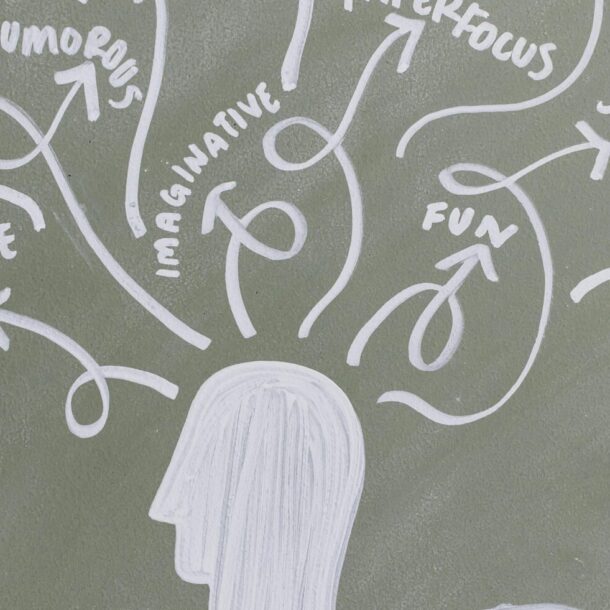
Empathy in Action: Small Ways to Make a Big Difference
In today’s fast-paced, digital world, empathy often feels like a rare commodity. But empathy—the ability to understand and share the feelings of others—is not just a soft skill; it’s a transformative force. Empathy has the power to build connections, ease tensions, and create supportive environments, whether in personal relationships, workplaces, or communities. Small acts of empathy can make a significant impact, uplifting those around us and fostering a culture of kindness and respect.
“Too often we underestimate the power of a touch, a smile, a kind word, a listening ear, an honest compliment, or the smallest act of caring, all of which have the potential to turn a life around.” – Leo Buscaglia
This article explores actionable, small ways to practice empathy, showing how small gestures can lead to big changes in personal and professional environments.
Why Empathy Matters
Empathy helps us connect on a human level, creating a bond that transcends titles, backgrounds, or roles. Practicing empathy goes beyond simply being nice; it involves actively trying to understand someone else’s perspective, even when it differs from our own. Research from Harvard Business Review reveals that empathetic leaders and colleagues build stronger relationships, leading to improved collaboration and productivity.
Empathy also creates ripple effects. A small act of kindness can inspire others to show empathy in return, creating a positive, supportive culture. In workplaces, schools, and communities, empathy transforms interactions, improving trust and fostering open communication.
1. Active Listening: The Heart of Empathy
Listening is one of the simplest yet most profound ways to demonstrate empathy. Active listening means fully focusing on what someone is saying without interrupting or thinking about how you will respond. When we listen actively, we make the speaker feel valued, respected, and understood.
At Zappos, the customer support team is trained in active listening to understand customers’ needs deeply. Instead of sticking to scripts, employees are encouraged to listen attentively, which has become part of the Zappos culture. This approach fosters trust and makes customers feel genuinely valued.
Actionable Tip: Practice active listening by maintaining eye contact, nodding to show understanding, and paraphrasing what the speaker has said to ensure clarity. Avoid interrupting and resist the urge to offer solutions unless asked.
2. Practicing Small Acts of Kindness
Sometimes, a small act of kindness is all it takes to make someone’s day better. This can be as simple as holding the door, offering a genuine compliment, or buying a coffee for a colleague. These gestures show people that they are seen and appreciated, fostering goodwill.
At Starbucks, employees are encouraged to “Make someone’s day.” Baristas often go out of their way to personalize experiences for customers, whether by remembering their names or adding an extra treat on special occasions. These small acts contribute to Starbucks’ reputation as a welcoming, customer-focused brand.
“No act of kindness, no matter how small, is ever wasted.” – Aesop
Actionable Tip: Find one small way to show kindness each day, whether by expressing gratitude, offering help, or simply smiling. These small actions foster a positive atmosphere and create a ripple effect of kindness.
3. Show Genuine Curiosity and Ask Open-Ended Questions
Empathy begins with curiosity. Showing interest in another person’s thoughts, experiences, and feelings helps us see the world through their eyes. Open-ended questions that invite people to share more about themselves demonstrate genuine care and allow them to open up without judgment.
At Airbnb, co-founder Brian Chesky emphasizes the importance of curiosity. When connecting with hosts and guests, Airbnb’s team asks open-ended questions to understand their perspectives, enabling the company to improve its platform based on real feedback. This customer-centric approach helps Airbnb empathize with its users and build trust.
Actionable Tip: Ask open-ended questions, such as, “How did that make you feel?” or “What would be helpful for you right now?” Avoid yes-or-no questions, and show genuine curiosity about the person’s answer.
4. Recognize and Validate Others’ Feelings
Acknowledging someone’s feelings—even when we don’t necessarily agree with them—is a powerful way to show empathy. Validating emotions doesn’t mean we have to solve someone’s problems; it simply shows that we respect their experience.
In the workplace, LinkedIn practices a culture of “compassionate leadership,” where leaders encourage employees to bring their full selves to work. By validating team members’ experiences, LinkedIn creates an environment of trust and psychological safety, where employees feel comfortable expressing their emotions.
“Empathy is about finding echoes of another person in yourself.” – Mohsin Hamid
Actionable Tip: When someone shares their feelings, respond with phrases like, “That sounds challenging,” or “I can see why you would feel that way.” Validation shows that you respect their perspective and are open to understanding.
5. Take Time to Check In
Often, we get so wrapped up in tasks that we forget to ask those around us how they’re doing. A simple check-in—whether with a family member, friend, or colleague—shows that we care. Asking “How are you really doing?” or “Is there anything you need?” opens the door for honest communication.
At Patagonia, managers prioritize regular check-ins with their teams, not just to talk about work but to genuinely ask about their well-being. This approach has fostered a sense of community within the company, showing employees that they are valued as people, not just workers.
Actionable Tip: Make it a habit to check in with people in your life, whether through a text, a quick chat, or a virtual coffee break. Even brief, informal check-ins go a long way in showing care and support.
6. Give People the Benefit of the Doubt
Empathy means assuming good intentions and understanding that everyone has off days. Rather than jumping to conclusions, giving people the benefit of the doubt helps to avoid misunderstandings and build stronger relationships. Empathy doesn’t ignore mistakes but looks beyond them, focusing on understanding the reasons behind someone’s behavior.
At Southwest Airlines, leaders promote a “People First” philosophy, where employees are encouraged to assume the best of one another. This approach has contributed to Southwest’s positive workplace culture, allowing team members to approach situations with patience and understanding.
Actionable Tip: When you feel frustrated by someone’s behavior, take a moment to consider their perspective. Ask yourself, “Is there something they might be going through that I don’t know about?”
7. Engage in Random Acts of Empathy
Beyond daily kindness, engaging in random acts of empathy can make a significant impact. These are small gestures that go beyond basic courtesies, showing thoughtfulness and attention to others’ needs. Sending a thank-you note, sharing words of encouragement, or helping someone with a difficult task are small ways to make a difference.
The nonprofit Random Acts of Kindness Foundation has been inspiring people around the world to engage in thoughtful, empathetic actions. Their mission demonstrates that empathy and kindness are contagious—one act often inspires others to do the same, creating a community of care and support.
“Spread love everywhere you go. Let no one ever come to you without leaving happier.” – Mother Teresa
Actionable Tip: Think of one random act of empathy you can do each week, such as leaving a positive note for a colleague or helping a neighbor with their groceries. Even small gestures can have a profound impact.
8. Acknowledge Mistakes and Apologize When Needed
Empathy includes acknowledging our mistakes and taking responsibility. When we hurt or inconvenience someone, even unintentionally, a sincere apology demonstrates humility and empathy. Apologizing shows that we value the other person’s feelings and are committed to making amends.
In Japanese culture, leaders are taught the importance of humility and accountability. At Toyota, executives publicly apologize when the company faces issues, acknowledging mistakes and committing to improvement. This approach has strengthened Toyota’s reputation for integrity and empathy toward customers and employees.
Actionable Tip: When you realize you’ve made a mistake, apologize sincerely without justifying your actions. An apology shows that you recognize the impact of your actions and respect the other person’s feelings.
9. Stand in Others’ Shoes Through Volunteerism
Volunteering provides a direct experience of others’ lives, fostering empathy and perspective. Engaging in community service allows us to see the world through others’ eyes and understand their challenges, often inspiring continued acts of kindness and generosity.
At Salesforce, the company’s “Volunteer Time Off” program allows employees to take time to serve their communities. This initiative has instilled a sense of empathy within the Salesforce workforce, as employees see firsthand the impact of service on the communities they support.
Actionable Tip: Look for volunteer opportunities in your community. Whether helping at a shelter, mentoring youth, or working with environmental groups, volunteer work fosters empathy and deepens our understanding of others’ lives.
10. Practice Self-Compassion to Build Empathy for Others
Self-compassion is often overlooked but is critical in building empathy. When we are kind to ourselves, we are more equipped to extend kindness and understanding to others. Practicing self-compassion reduces judgment and encourages a more positive, empathetic approach to both ourselves and others.
“You can’t pour from an empty cup. Take care of yourself first.”
Actionable Tip: Take time each day for self-care, reflection, or mindfulness. When we are compassionate with ourselves, we build a foundation that allows us to approach others with patience and empathy.
Conclusion: Small Actions, Big Impact
Empathy doesn’t require grand gestures; sometimes, the smallest actions create the most profound changes. By practicing empathy in everyday moments, we foster stronger relationships, build trust, and create a culture where kindness is valued and shared.
“The world is full of good people. If you can’t find one, be one.” – Unknown
Whether it’s a kind word, a listening ear, or a helping hand, each act of empathy has the power to create a positive ripple effect. In a world that often feels divided, empathy can bring us closer, reminding us of our shared humanity and the profound impact of kindness.
About Ruchi Rathor
Ruchi Rathor is the founder of Payomatix, where she advocates for compassion, empathy, and resilience in professional and personal relationships. Passionate about fostering connection and understanding, Ruchi believes in the power of small acts of empathy to make lasting changes. To learn more about her mission and insights, visit Ruchi Rathor.


